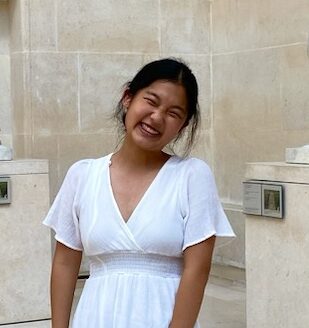
In 2014, Time Magazine published an article titled “The One Word You Need to Stop Using Immediately.” Discussing the use of the word “hope” in the business world, they argued that it implies a lack of personal control [1]. According to this argument, hope is simply a desire for something to happen, lacking confidence, and should be replaced with rhetoric of assurance. This line of thought is pervasive — both through modern culture and modern life itself. As Canadian philosopher Charles Taylor puts it, “We all live in a world in which it is increasingly easy to imagine that reality is something we can manipulate according to our own wills and desire.”[2] Coining the term “disenchanted” to describe modern day society, Taylor separates a society that previously believed in seeking meaning from higher powers to the current “disenchanted” society that perceives meaning internally, determining significance through the mind.”[3]
Because we are a naturally storytelling species — obsessed with making meaning in a world gone mad — our brains are not satisfied with randomness [4]. In the face of evil and suffering in the world, we must claim a reason as to why it exists and what we are going to do in response. Rabbi Harold Kushner, author of When Bad Things Happen to Good People states, “We could bear nearly any pain or disappointment if we thought there was a reason behind it, a purpose, to it.”[5] However, in a disenchanted society, “the realm of significance is enclosed within the material universe and the natural world,”[6] and therefore we must search for meaning within the material world around us. Additionally, in a literal sense, as a result of the advent of technology and a redefined sense of connection, society can seem disenchanted. Our eyes are glued to our screens and our lives devoted to levels of consumerism like never before — one statistic states that 48% of Americans believe they need to spend money to be happier [7]. Instead of seeking meaning in transcendent goods, we look for it in material ones. Hope is rooted in our own capabilities – our capacity to provide and comfort ourselves. Dr Shane J. Lopez, a leading researcher on hope and author of Making Hope Happen, defined hope as “the belief that the future will be better than the present, along with the belief that you have the power to make it so.”[8] However, the very willpower necessary for hope is drained away by a fixation on other sources.
Our willpower is spent on the latest productivity trends, philosophies for the ideal morning routines and the constant filling of our calendars. Understanding this, Taylor continues, “We have constructed an environment in which we live in a uniform, univocal secular time, which we try to measure and control in order to get things done.’ So nothing “higher” impinges upon our calendars- only the tick-tock of chronos, and the self-imposed burdens of our “projects.”[9] Living in an American culture defined by productivity, we work to create a sense of meaning but fail and are ultimately faced with the insufficiency of our solutions. In our disenchanted world, “we lose any idea that God was planning a transformation of human beings which would take them beyond limitations which inhere their present condition”[10] and feel the limiting view of a society that does not believe in inherent meaning and purpose. All of a sudden, the freedom granted in a disenchanted world becomes far more restricting than freeing – forcing the realization that freedom alone is not always an inherent good. “In many areas of life, freedom is not so much the absence of restrictions as finding the right ones, the liberating restrictions.”[11] The late Tim Keller, a pastor and theologian, argues that “Disciplines and constraints, then, liberate us only when they fit with the reality of our nature and capacities.”[12]
So what then is the reality of human nature and its capacities? Widening the story of the world and in doing so, “enchanting” life with the existence of God, the Christian worldview believes that flawed humans still have a high value, but serve a perfect, all-powerful God, who desires to be in relationship with us. The Bible states that we, though once perfect, have chosen to disobey God. In disobeying God, we deserve judgment and need to pay a price of death for our disobedience. However, with a love beyond what we could imagine, Jesus died on the cross in our place, fulfilling the need for payment for our sins and ultimately defeating death. Because of this sacrifice of such love, Christians are guaranteed an eternal life of perfection, and while they are on Earth, they are called to serve God. Much like Victor Hugo writes in Les Miserable as Jean Valjean is shown mercy, there is a sort of frightful calm in the injustice of our misfortune [13]. And yet, in knowing the value and weight of each undeserved blessing that they are given, Christians are able in turn to trust in a God whose character has been faithfully demonstrated. As Scott Hafeman, a New Testament scholar, says, “Sinners come to God knowing that although there is no reason in them that God should be merciful, God has every reason in Himself to show mercy (Isa. 43:25).”[14] In the Psalms, David praises God, recognizing the power that is evident when in nature, along with the seemingly juxtaposing intimate care that God has for His people. “When I look at your heavens, the work of your fingers, the moon and the stars, which you have set in place,what is man that you are mindful of him, and the son of man that you care for him? Yet you have made him a little lower than the heavenly beings and crowned him with glory and honor.”[15]
In response to the life they have been given, Christians are called to have faith, a concept that can seem similar to hope, and a word often used with a similar level of confidence. A life of faith can seem like a way of life that is void of foundational hope and control from the outside. However, as Hebrews 11:1 states, “faith is the assurance of things hoped for.” The Christian life is lived towards an assured future, widening out the meaning of life to a beautiful enchanted story of the world that threads meaning into the brokenness. As the author and speaker Joni Earekson Tada states, “Most of the time, we scratched our heads and wondered how the matted mesh of threads in Romans 8:28 could possibly be woven together for our good. On earth, the underside of the tapestry was tangled and unclear; but in heaven, we will stand amazed to see the topside of the tapestry and how God beautifully embroidered each circumstance into a pattern for our good and His glory.”[16] Christians do not serve a God who desires to hide hope from them. Rather, in unveiling a greater story and guaranteed ending, God has created a world that reflects and offers His hope.
The Christian faith offers hope, and not just hope based on our willpower to bring desire into fruition, but one that stems from endurance that does not put us to shame. Christianity infuses the concept of hope with a reliable and consistent source of power and Christians can hope that things will be better in the future because they are fully promised to be, from a God who died and resurrected to grant us that very hope. As Keller states, “the Biblical view of things is resurrection…not a future that is just a consolation for the life we never had but a restoration of the life you always wanted.”[17] Jesus’ resurrection and defeat of death offers great hope that God has the power to redeem everything, including humans, as we were made for more than this world. In the same way that we were created with innate desires that ultimately correspond with objects that can satisfy them (i.e. hunger and food, fatigue and sleep), “we want something that nothing in this world can fulfill. Isn’t that at least a clue that this “something” that we want exists? This unfulfillable longing, then, qualifies as a deep, innate human desire, and that makes it a major clue that God is there (139).”[18]
It is no surprise that our world is filled with antagonists to hope. We are daily bombarded with news of tragedy and disaster, and yet are simultaneously encouraged to live as if we are in full control. However, our constant disappointment with the world, the misalignment of our expectations versus reality, ultimately shows that we carry expectations of a world better than the one we live in [19]. A hope and foundation that does not promise redemption of pain and suffering in this world is not one worth placing trust in. However, in offering a secured future of redemption, the Christian faith offers a specific and grounded way of living in this broken world. Jesus himself blatantly warns of a world of difficulty but is just as blatant with the hope that we are able to have. “I have said these things to you, that in me you may have peace. In the world you will have tribulation. But take heart; I have overcome the world.”[20] He also says “The thief comes only to steal and kill and destroy. I came that they may have life and have it abundantly.”[21] Abundant life is one where we can speak of what we truly hope for with true confidence in the God who can bring those hopes into reality. Abundant life is one where we know who is in control and can live in the freedom that comes from being in relationship with Him, not seeking a hidden hope, but confident in the one that has been offered. Abundant life is life with the very Founder and Perfecter of our Faith, the ultimate reason we hope.

Written by:
Eowyn Oh, Managing Editor
Eowyn is a second-year student from Broomall, PA studying secondary education and English at Vanderbilt.
- “The One Word You Need to Stop Using Immediately.” Time, February 20, 2014. https://time.com/8919/the-one-word-you-need-to-stop-using-immediately/.
- A., Smith James K. How (Not) to be Secular: Reading Charles Taylor. p. 41
- Ibid, p. 34
- “Why Do Bad Things Happen to Good People?” Psychology Today. Accessed July 11, 2023. https://www.psychologytoday.com/us/blog/finding-purpose/201910/why-do-bad-things-happen-good-people.
- Kushner, Harold S. When bad things happen to good people. Pan Macmillan UK, 2021.
- A., Smith James K. How (Not) to be Secular: Reading Charles Taylor. p. 48
- Gitnux, Author: “The Most Surprising Consumerism in America Statistics and Trends in 2023 • Gitnux.” GITNUX, April 14, 2023. https://blog.gitnux.com/consumerism-in-america-statistics/.
- “How Hope Can Help You Reach Your Goals.” happify.com. Accessed July 11, 2023. https://www.happify.com/hd/the-trick-is-to-never-lose-hope/.
- Taylor, Charles. A Secular Age. p. 34
- Ibid, p. 224
- Keller, Timothy. The Reason for God. p. 47
- Ibid.
- Hugo, Victor, Lee Fahnestock, and Norman MacAfee. Les Miserable. New York: New American Library, 1987.
- John Armstrong and John Woodbridge. This We Believe. Zondervan, 2000, p. 86.
- Psalm 8:4-5, ESV
- Tada, Joni Eareckson. Heaven: Your Real Home. p. 45
- Keller, Timothy. The Reason for God. London: Hodder & Stoughton, 2009.
- Ibid.
- Hearne, Travis. “A Theology of Disappointment.” Southern Equip, October 26, 2021. https://equip.sbts.edu/article/a-theology-of-disappointment/.
- John 16:33, ESV
- John 10:10, ESV
